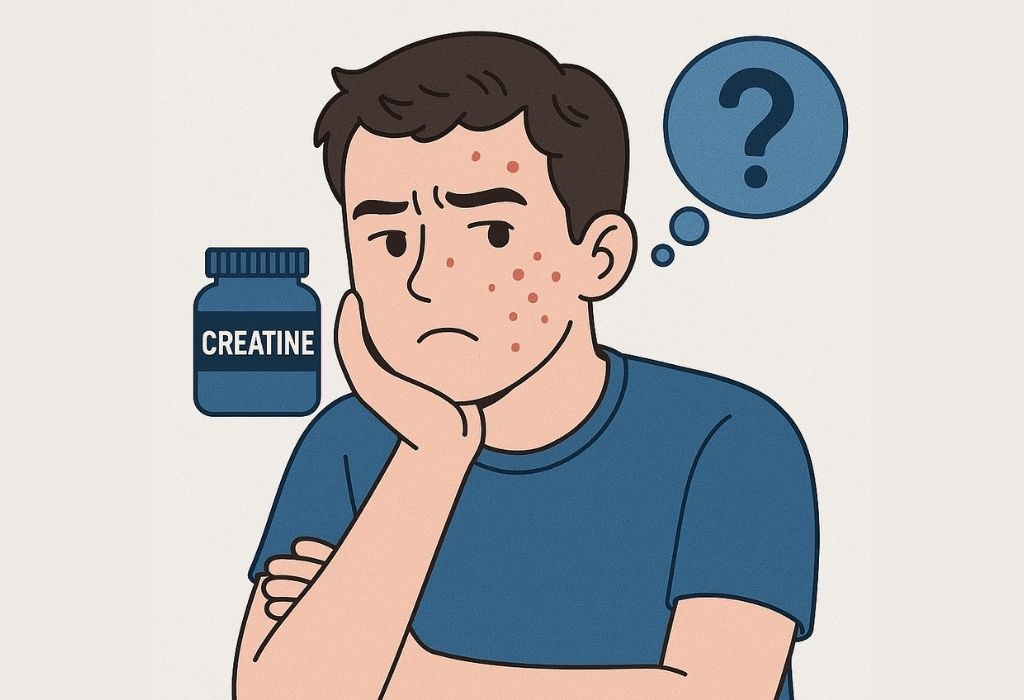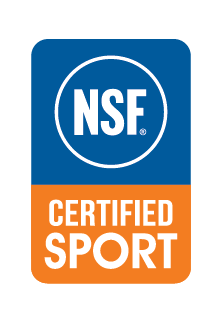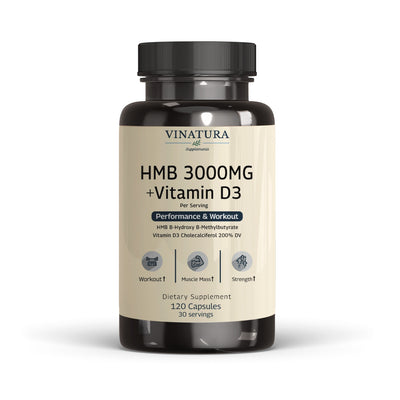
Does Creatine Cause Acne? Explore the Myths
Current research shows no direct link between creatine and acne. While some users report breakouts, studies have found no scientific evidence that creatine causes acne when taken as recommended. Most confusion stems from its association with anabolic steroids, which do affect skin health. This article clears up the myth.
Before exploring further, please read the disclaimer located at the end of this webpage.
Key Takeaways
- Creatine doesn’t cause acne; no evidence links it to skin issues.
- Boosts muscle energy with 20-25g/day loading or 3-5g/day maintenance.
- May improve skin blood flow and capillary density.
- Acne from steroids (AAS) affects 50% of users, not creatine.
- Consult a doctor if acne persists or for pre-existing kidney issues.
Does Creatine Cause Acne?

No, creatine does not cause acne. Research shows no link between creatine supplementation and acne. Confusion often arises from myths or their association with steroids, which can cause skin issues.
Current evidence suggests creatine, a popular supplement for enhancing muscle performance, does not directly contribute to acne. Studies focus on its benefits, like improved microvascular reactivity and muscle mass, without mentioning skin-related side effects.
Common concerns about creatine, such as kidney damage or dehydration, have been debunked in healthy individuals at recommended doses, and acne is not listed as a side effect in any provided research.
You may also read: Does Creatine Cause Hair Loss? User Experiences & Scientific Evidence
However, some users report acne while taking creatine, which may stem from other factors. For instance, certain creatine products might be contaminated with steroids, or users might combine creatine with anabolic-androgenic steroids (AAS), which are known to trigger acne [3]. This confusion often leads to misconceptions about creatine’s effects on skin health.
To understand why creatine is sometimes mistakenly linked to acne, it’s important to clarify the difference between creatine and steroids. The next section, What Is a Steroid? Why Do Steroids Cause Acne? Explores how steroids, unlike creatine, can impact skin health and contribute to acne development.
What Is a Steroid? Why Do Steroids Cause Acne?
Steroids, specifically anabolic-androgenic steroids (AAS), are synthetic derivatives of testosterone, widely used in bodybuilding to enhance muscle growth and performance (Melnik et al., 2007).
Popular among athletes and gym-goers in places like Germany, AAS such as testosterone, boldenone, and nandrolone decanoate are prized for their ability to boost strength and physique.
However, their misuse is a growing health concern due to severe side effects, including acne, which affects about 50% of AAS users, particularly young men aged 18-26 [3].
Unlike creatine, which has no direct link to acne, AAS can trigger severe forms like acne conglobata or acne fulminans. AAS increases sebum production by enlarging sebaceous glands and boosting lipid synthesis, while also promoting Propionibacterium acnes growth.
These effects stem from AAS binding to androgen receptors in sebaceous glands and hair follicles, directly and indirectly via enzymes and PPAR-alpha1 receptors, leading to "bodybuilding acne" or "doping acne" [3].
The misconception that creatine causes acne likely arises from its use in similar fitness circles as AAS. Some creatine products may be contaminated with steroids, or users may combine creatine with AAS, mistakenly attributing acne to creatine.
Is Creatine a Steroid?
Creatine is not a steroid. Unlike anabolic-androgenic steroids (AAS), which are synthetic testosterone derivatives, creatine has a distinct chemical structure and function, primarily supporting muscle energy production [4]. AAS misuse can lead to severe health issues, including acne, due to increased sebum production and bacterial growth [3].
Research shows no link between creatine supplementation and acne, debunking myths that confuse it with steroids. This distinction clarifies why creatine is safe for skin health, unlike AAS, which can trigger serious skin issues.

How Does Creatine Work in Your Body?
Creatine, a naturally occurring compound synthesized in the liver and kidneys from amino acids, is also obtained from meat or supplements, with creatine monohydrate being the most studied form. In muscles, it transforms into phosphocreatine (PCr), a rapid energy reserve.
During intense, short-duration exercises like sprinting or weightlifting, PCr donates phosphate to replenish ATP, the primary energy source for muscle contractions.
It also supports increased intracellular water retention, which may contribute to initial weight gain. Additionally, creatine offers antioxidant and cellular protection benefits, improving microvascular reactivity and skin capillary density.
Unlike anabolic-androgenic steroids (AAS), which trigger acne by enlarging sebaceous glands and boosting sebum, creatine’s distinct mechanism shows no evidence of causing acne, as confirmed by research.
Two major scientific reviews—Pacanowska et al. (2025) and Kuźnieców et al. (2025)—have extensively examined the safety and side effects of creatine supplementation. Neither study found any evidence linking creatine use to acne [7,8].
Both reviews concluded that creatine is a safe, well-tolerated, and effective supplement for improving physical performance, with no reported skin-related side effects. These findings reinforce the conclusion that creatine does not cause acne.

Despite this, anecdotal reports of acne linked to creatine continue to surface. One possibility is that certain creatine products may be contaminated with anabolic steroids or impurities, leading to unintended hormonal effects.
Others may be using creatine in conjunction with whey protein or dairy, both of which have been independently associated with acne in sensitive individuals.

Take, for example, Team Acne, a fitness YouTube channel run by an athlete with over a decade of training experience. In his video, he shares that he began taking creatine and experienced severe acne at age 15.
However, he also consumed large amounts of milk and whey protein during this period. Later in life, he continued using creatine but eliminated dairy—and his acne disappeared.
Even after cycling off and back on creatine, breakouts did not return, suggesting that creatine alone may not have been the cause.*

Another case comes from Mon Kwiatkowski, a female with a background in sports science. She started taking creatine in late January to enhance muscle performance.
At first, everything seemed fine, but after a few weeks, she developed severe cystic acne along her jawline, chin, and cheeks—areas typically affected by hormonal acne.*
When she stopped creatine for seven days, the breakouts subsided significantly, with no new cysts forming and only residual marks remaining.
She speculated that creatine might have increased her dihydrotestosterone (DHT) levels—a hormone known to trigger excess sebum production and acne in sensitive individuals.*
This is supported by Antonio’s study, which observed elevated DHT levels following creatine use in rugby players (Antonio et al., 2021). However, this is just anecdotal user feedback; more research is needed to gain a comprehensive understanding of the issue.
Why Do I Have Acne When Taking Creatine?
Not only does creatine not cause acne, but some believe it indirectly improves skin health by enhancing blood flow and cellular protection. Yet, some users report breakouts while using it. Here’s why this might happen, despite no direct link.
Creatine Product Mixed with Steroids
Low-quality creatine products, especially from unverified sources, may be contaminated with anabolic-androgenic steroids (AAS). These steroids can trigger acne by increasing sebum production and bacterial growth. Therefore, choosing high-purity creatine monohydrate minimizes this risk.
Simultaneous Use with Another Steroid Product
Some users combine creatine with AAS, which is common in bodybuilding, and are known to cause severe acne forms. The acne is likely due to steroids, not creatine, but the association leads to confusion. Always verify supplement ingredients to avoid unintended steroid use.
Other Contributing Factors
Acne during creatine use may stem from unrelated factors like hormonal changes, a diet high in dairy or sugar, or increased sweating from intense workouts, which can clog pores. Stress or poor skincare routines can also contribute. Addressing these factors is key to managing breakouts.
How Does Creatine Connect to Acne and Skin Health?

Good news: No solid evidence says creatine causes acne or messes with your skin. In fact, it might give your skin a glow-up!
A study by de Moraes et al. on 40 healthy, active men showed that taking 20g of creatine monohydrate daily for a week boosted skin blood flow by improving microvascular reactivity and increasing capillary density [6].
This means more nutrients and oxygen reach your skin, potentially making it healthier. Plus, creatine’s antioxidant properties may protect skin cells, keeping them strong [6].
Let’s dive into the buzz about creatine and skin from Reddit. One user raved, “Creatine gave my skin a glow-up! It’s smoother and healthier, probably from chugging water.” Hydration’s a game-changer with creatine.*
Meanwhile, someone with sensitive skin shared, “I feared breakouts, but creatine was fine—just drink tons of water!” Solid advice. However, it’s not all smooth sailing. A user noted, “Six weeks in, my acne flared up. Not sure if it’s creatine or something else.” Could be diet, stress, or a sketchy product with contaminants like steroids, which can trigger acne in about 50% of users.*
While creatine typically doesn’t cause breakouts like steroids do, it can still come with certain side effects you should be aware of. Let’s move on to the next section to explore how to protect your skin and optimize your wellness routine.
Creatine Side Effects You Should Be Aware of
Creatine is generally safe, but some side effects are worth noting. Initial weight gain of 1-3 kg is common due to increased intracellular water retention [5]. Elevated blood creatinine levels may occur, but studies confirm this doesn’t indicate kidney damage in healthy individuals at recommended doses.
Anecdotal reports of muscle cramps, dehydration, or digestive issues lack scientific support; proper dissolution of creatine can minimize stomach discomfort [4,5,1]. So, those with pre-existing kidney issues should consult a doctor before use.
Claims of hair loss are linked to a slight increase in dihydrotestosterone (DHT), a hormone metabolized from testosterone that may cause hair loss if elevated [4]. Creatine doesn’t increase fat mass, and any weight gain is primarily water or lean muscle from improved training.
How to Use Creatine

Creatine monohydrate, the most researched and effective form, should be sourced from high-purity options, clearly labeled ingredients, to avoid contaminants.
Two common strategies exist: a loading phase (20-25g/day, split into 4-5 doses of 5g, or 0.3g/kg body weight for 5-7 days) rapidly saturates muscle creatine stores, or a maintenance phase (3-5g/day or 0.1g/kg) achieves similar results over 4 weeks [2,4,5].
Loading is optional; choose it for quick performance boosts, while daily maintenance suits long-term use or to minimize initial weight gain [4]. Dissolve creatine fully and split high doses (≤10g) to reduce digestive discomfort. Stick to recommended doses, as more isn’t better [4].
How to Choose Quality Creatine
Richard R., an Amazon buyer creatine, noted that the label on the creatine tablets he uses states they are manufactured in the USA with globally sourced ingredients and tested by a third-party lab. Opting for a product with transparent labeling and a steroid-free formula may help reduce the risk of side effects while still supporting performance.*
Richard’s experience highlights why product quality matters. Picking the right creatine is crucial to avoid side effects like acne and get the most out of your supplement.
Stick to creatine monohydrate—it's the gold standard, backed by tons of research for safety and effectiveness. Look for brands with third-party certifications like NSF Certified for Sport or Informed Sport to guarantee no sneaky steroids or contaminants like dicyandiamide, which can mess with your skin.
Steer clear of blends with additives or unproven forms like creatine ethyl ester, as they might hide steroids that trigger breakouts in up to 50% of users. Always check labels for single-ingredient, micronized creatine monohydrate—it dissolves better and is less likely to cause issues.
Read more: 13 Best Creatine Supplements for Strength and Performance

To keep your skin clear, proper usage matters just as much as choosing a clean product. The next section offers tips to help you stay breakout-free while maximizing your gains.
How to Get Rid of Acne While Taking Creatine
If you experience acne while using creatine, it’s likely not the creatine itself. Check product labels for contaminants like steroids, which can trigger breakouts by increasing sebum production and bacterial growth.
Stop using the product and consult a doctor to identify the cause—such as anabolic-androgenic steroid (AAS) use or other factors like diet. If you have persistent or severe acne, consult a dermatologist for appropriate treatment options.
Additionally, don't overlook the importance of proper skincare. A Reddit user also pointed out that starting creatine often goes hand-in-hand with more intense workouts and dietary changes.
Exercise naturally increases sweating, and if the skin isn’t properly cleansed, it can easily lead to breakouts. Paying attention to post-workout skincare can significantly improve the condition.*
Conclusion
Creatine seems a safe, effective supplement that enhances muscle performance without causing acne, as no research links it to skin issues. Misconceptions often stem from its confusion with steroids, which trigger breakouts in 50% of users.
Opt for pure creatine monohydrate to avoid contaminants and enjoy benefits like improved energy and potential skin health support. If acne occurs, check for steroid contamination or other factors and consult a doctor.
Ready to optimize your fitness journey with creatine while keeping your skin clear? Explore high-quality options and start confidently today.
Testimonial Disclaimer
*The testimonials presented on this website are provided by individuals based on their personal experiences with our products. These testimonials represent individual opinions and experiences, which may not be typical or applicable to all users of our products. Results may vary depending on a variety of factors, including individual health, lifestyle, and adherence to product usage instructions.References
- [1] Francaux, Marc, and Jacques R. Poortmans. “Side Effects of Creatine Supplementation in Athletes.” International Journal of Sports Physiology and Performance, vol. 1, no. 4, Dec. 2006, pp. 311–323, https://doi.org/10.1123/ijspp.1.4.311.
- [2] Cooper, Robert, et al. “Creatine Supplementation with Specific View to Exercise/Sports Performance: An Update.” Journal of the International Society of Sports Nutrition, vol. 9, no. 1, 20 July 2012, pp. 1–11, https://doi.org/10.1186/1550-2783-9-33.
- [3] Melnik, Bodo, et al. “Abuse of Anabolic-Androgenic Steroids and Bodybuilding Acne: An Underestimated Health Problem.” JDDG, vol. 5, no. 2, Feb. 2007, pp. 110–117, onlinelibrary.wiley.com/doi/10.1111/j.1610-0387.2007.06176.x/abstract, https://doi.org/10.1111/j.1610-0387.2007.06176.x.
- [4] Antonio, Jose, et al. “Common Questions and Misconceptions about Creatine Supplementation: What Does the Scientific Evidence Really Show?” Journal of the International Society of Sports Nutrition, vol. 18, no. 1, 8 Feb. 2021, pmc.ncbi.nlm.nih.gov/articles/PMC7871530/.
- [5] Kraemer, William J., and Jeff S. Volek. “CREATINE SUPPLEMENTATION.” Clinics in Sports Medicine, vol. 18, no. 3, July 1999, pp. 651–666, https://doi.org/10.1016/s0278-5919(05)70174-5.
- [6] De Moraes, Roger, et al. “Effects of Dietary Creatine Supplementation on Systemic Microvascular Density and Reactivity in Healthy Young Adults.” Nutrition Journal, vol. 13, no. 1, Dec. 2014, https://doi.org/10.1186/1475-2891-13-115.
- [7] Martyna Pacanowska, et al. “How Does Creatine Supplementation Affect Physical Performance and Muscle Recovery? - a Literature Review of Its Effects, Mechanisms of Action, Safety and Side Effects.” Quality in Sport, vol. 39, 14 Mar. 2025, p. 59114, www.researchgate.net/publication/389873417_How_Does_Creatine_Supplementation_Affect_Physical_Performance_and_Muscle_Recovery_-_A_Literature_Review_of_Its_Effects_Mechanisms_of_Action_Safety_and_Side_Effects, https://doi.org/10.12775/QS.2025.39.59114.
- [8] Kuźnieców, Tadeusz, et al. “Additional Benefits of Creatine Monohydrate Supplementation on Muscle Strength, Muscle Mass Gain and Training Performance - a Systematic Review.” Quality in Sport, https://doi.org/10.12775/qs.2025.41.60300. Accessed 22 May 2025, vol. 41, 5 May 2025, p. 60300.
Author

Product Disclaimer
Including an ingredient or study does not evaluate, endorse, or recommend any Vinatura product or any third-party product. Some ingredients discussed may not be used in any Vinatura product.
The content of the articles has not been evaluated by the Food and Drug Administration (FDA) and is not intended to promote or endorse any specific product. Any products sold on this website are not intended to diagnose, treat, cure, or prevent any disease.
Opinions and Endorsements
Any claims, statements, or opinions expressed in the articles are those of the author(s) and do not necessarily reflect the views or opinions of the manufacturers of the dietary supplement products. The products sold on this website are separate from the content of the articles and are not directly endorsed or associated with the information presented here.
Liability Disclaimer
The author(s) of the articles, website, and manufacturers of the dietary supplement products do not assume any liability for any potential consequences arising from the use of the information provided in the articles. Ingredient effects, dosages, and safety vary by individual, formulation, and context; some ingredients interact with medications or may be unsuitable during pregnancy or lactation. It is recommended that individuals consult with a qualified healthcare professional before making any dietary or lifestyle changes, including the use of dietary supplements.
Product Usage
Please refer to the product labels and packaging for specific usage instructions and guidelines for the dietary supplement products sold on this website.
Customer Support
For any concerns or questions regarding the dietary supplement products, please contact our customer support team, who will be more than happy to assist you.






Leave a Comment
Be the first to comment.
What do you think?